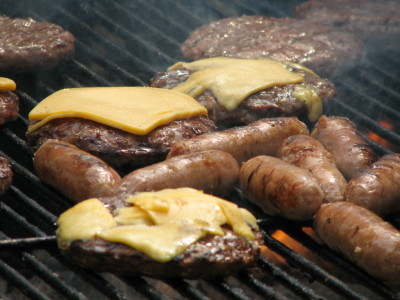The presence of the sixth taste "fat taste" may be the key to prevention of obesity

HumantasteIs a sensation based on the acceptance of chemical substances, there are five basic tastes (sweet, sour, salty, bitter, umami)Taste budThrough the chemoreceptor at the tip of the taste receptor cellMembrane potential, It is recognized as "sweet", "sour", etc., it is judged that it can not be eaten, it is poison, or the basic taste is expanded with other elements (olfactory, visual, memory, etc.) I feel "flavor" that I did is "delicious".
In addition to the five basic tastes, it became clear that the sixth basic taste "fat taste" exists. It is expected that sensitive or not to "fatty" is related to body weight, and it is expected to be a key to measures against obesity.
Details are as below.Discovery of 'fat' taste could hold hold the key to reducing obesity
Australia·Deakin UniversityDeakin University led by Dr. Russell Keast ofUniversity of Adelaide·Federal Institute of Science and Industry, AustraliaAnd New ZealandMassey UniversityIn a joint study by humans, humans can feel the sixth taste "fat taste", people sensitive to "fat taste" tend to have lower intake of greasy foods than those who are not so, they become overweight It became clear that it was difficult. Thesis isBritish Journal of NutritionIt is published in the latest issue of the magazine.
"Our research is based on research results that showed the existence of" fatty "using animal models previously done in the United States," Dr. Keast said. "We know that human tongue can detect five tastes of sweetness, salty taste, acidity, bitter taste and umami (taste of food rich in protein). Based on the results of this study, we found that six human beings I can conclude that I have the taste of eyes "fat". "
In the study, general food contained in foodfatty acidI experimented whether human beings can feel the "taste" of several kinds of them. As a result, people feel "greasy"Threshold (Ikichi)There were individual differences in the threshold value, and it became clear. People with low threshold (low sensitivity) can feel the taste of fatty acids in a small amount, whereas those with high threshold (insensitive) can not feel the same amount even if they are the same amount.
"Also, interestingly, people who are sensitive to greasiness have lower intake of lipids than insensible peopleBMIIt was also revealed that it is low, "Dr. Keast said.
"This result suggests that in modern times where lipids are easily obtained and widely consumed, there are people who are at risk of being insensitive to greasiness and consequently at risk of eating too much greasy foods Future research will focus on why there are people who are insensitive while there are people who are sensitive to greasiness and if you can clarify the reason why people who want to keep the intake of lipids It will be helpful and will be useful for the development of low-fat foods etc. "
"Bitterness", "sourness", etc. are important for judging "poison," "rotten", "not food", etc. It is basic taste that has been involved in survival to be sensitive, but food is abundant In modern times where you can easily obtain it in malnutrition rather than malnutrition In the present age, it may be changing which taste sensitive being advantageous to stay healthy and live longer.
Related Posts:
in Science, Posted by darkhorse_log







